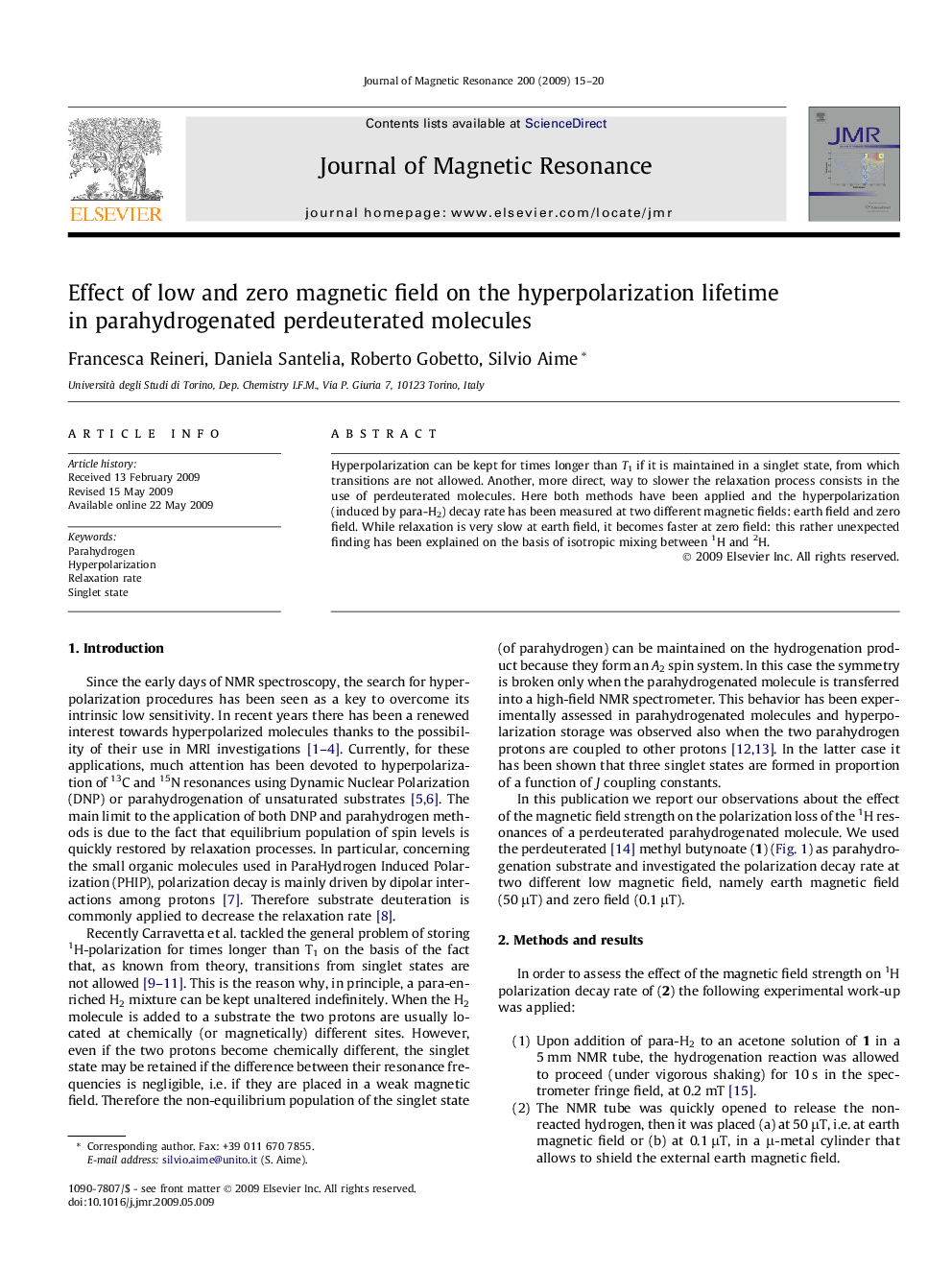| Article ID | Journal | Published Year | Pages | File Type |
|---|---|---|---|---|
| 5406861 | Journal of Magnetic Resonance | 2009 | 6 Pages |
Abstract
Hyperpolarization can be kept for times longer than T1 if it is maintained in a singlet state, from which transitions are not allowed. Another, more direct, way to slower the relaxation process consists in the use of perdeuterated molecules. Here both methods have been applied and the hyperpolarization (induced by para-H2) decay rate has been measured at two different magnetic fields: earth field and zero field. While relaxation is very slow at earth field, it becomes faster at zero field: this rather unexpected finding has been explained on the basis of isotropic mixing between 1H and 2H.
Related Topics
Physical Sciences and Engineering
Chemistry
Physical and Theoretical Chemistry
Authors
Francesca Reineri, Daniela Santelia, Roberto Gobetto, Silvio Aime,
